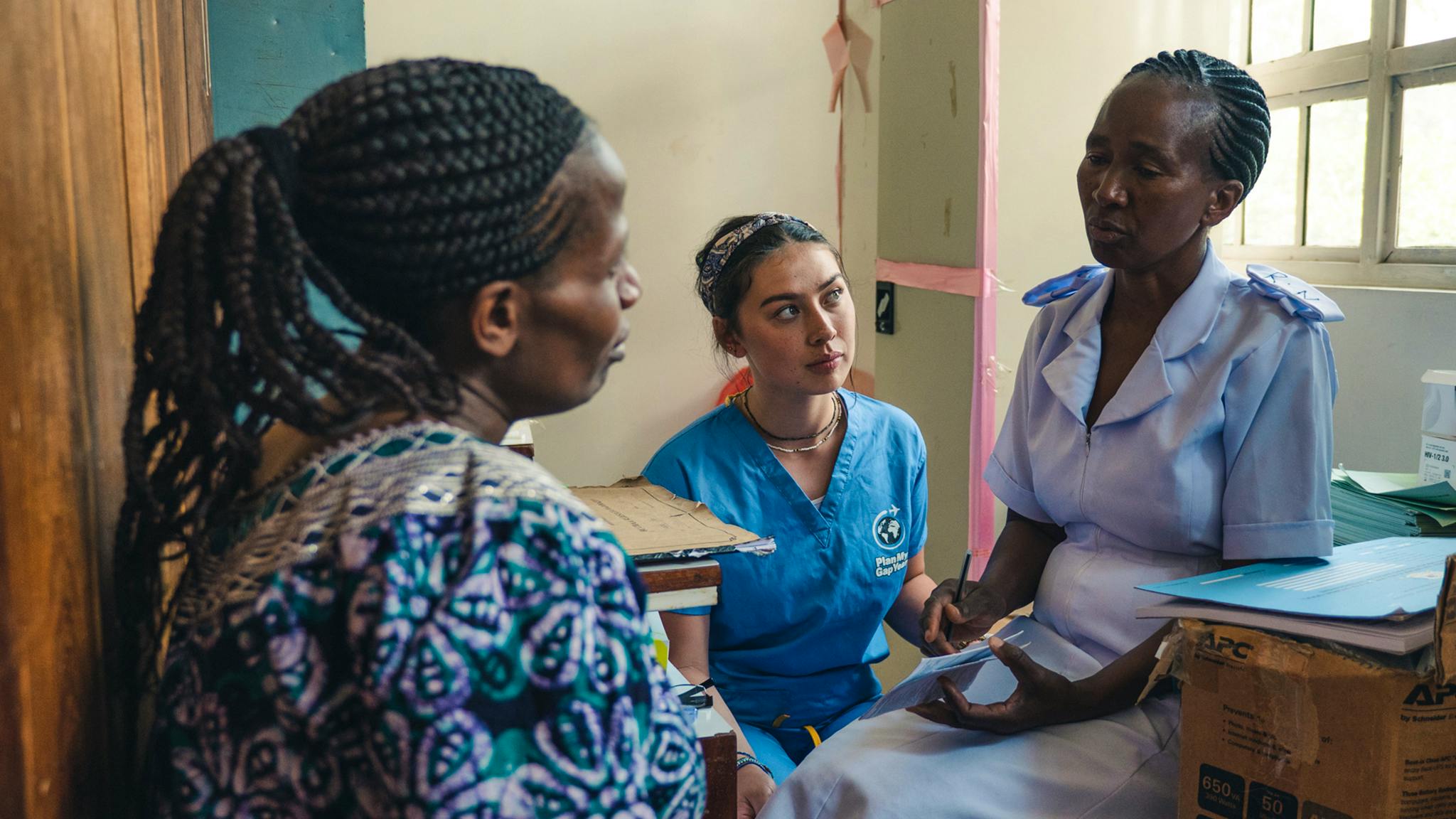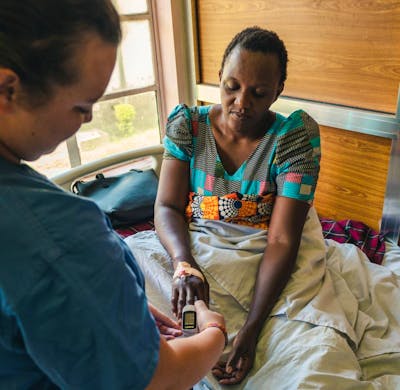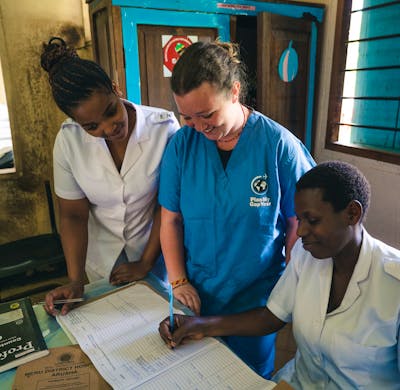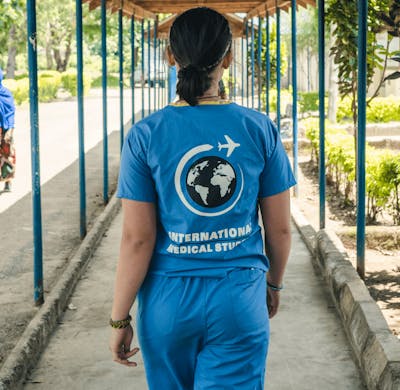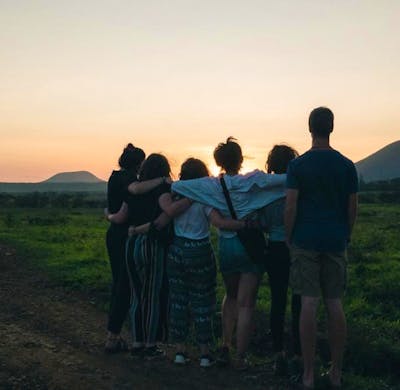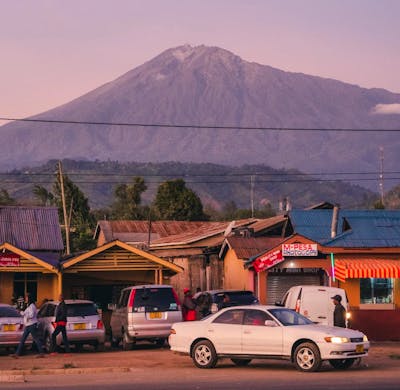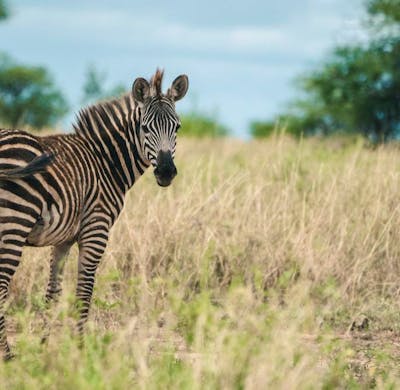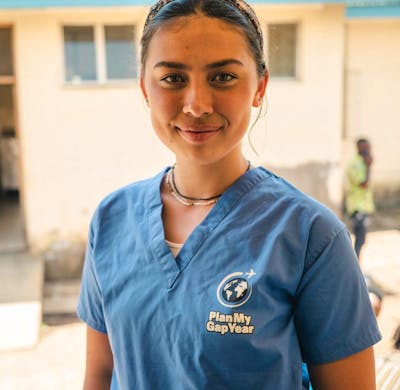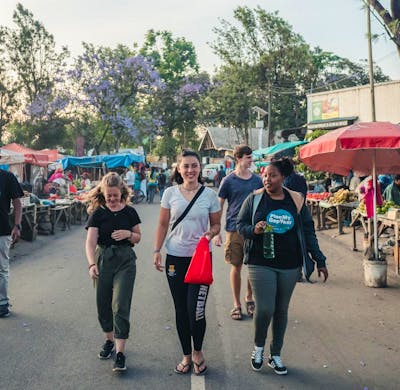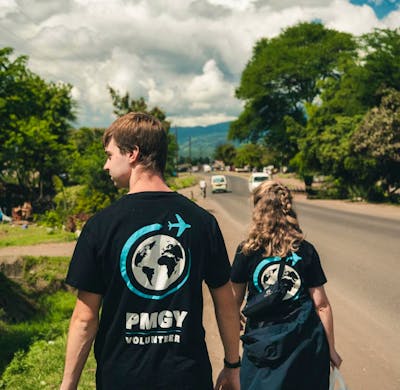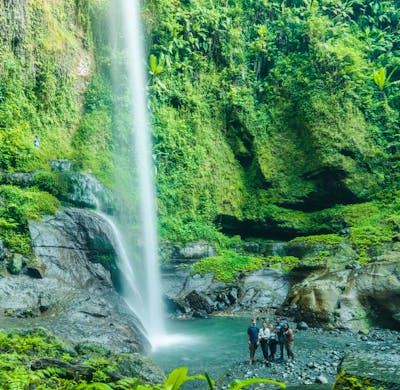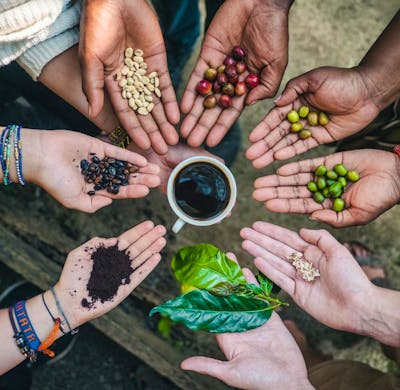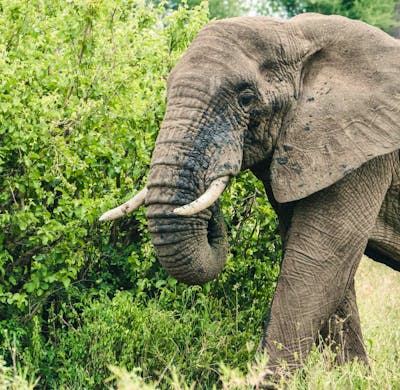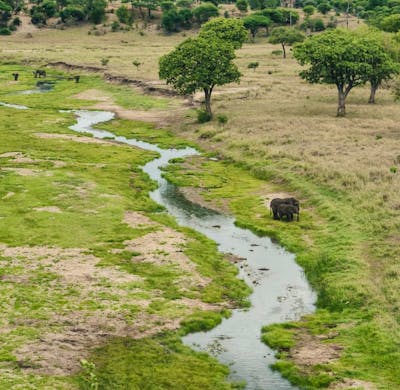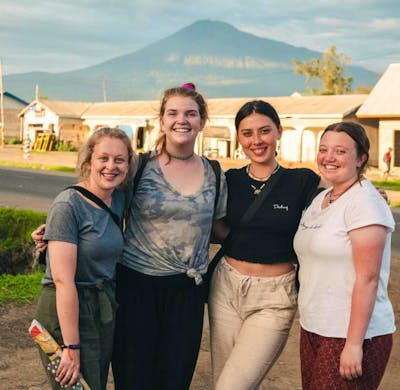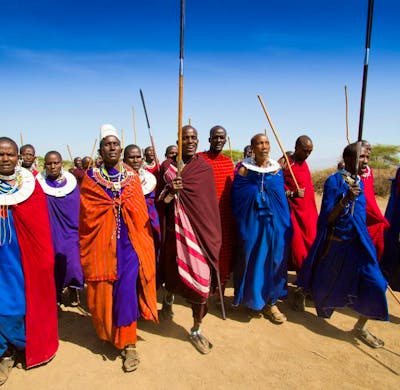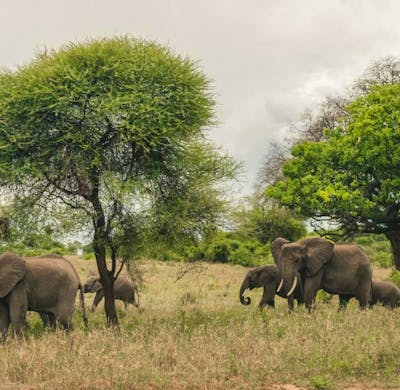Like many African countries, Tanzania faces an acute shortage of health care workers. Low pay, poor working conditions and limited training programmes contribute to the problem, whilst the rising burden of HIV/AIDS treatment greatly amplifies the situation. Unfortunately, health standards in Tanzania have declined so much that it trails most other developing nations.
PMGY collaborate with a government hospital and community clinic within the Arusha and Meru district. Please note you can only be placed at one medical facility during your time with us. In some circumstances it may be possible to combine medical facilities during your time with us, but this will incur an additional $150 local payment as a medical donation to the new facility you are transferring over to.
GOVERNMENT HOSPITAL
We place volunteers at a government hospital located in the town of Tengeru, a neighbouring town of Arusha. Started originally as a women’s health centre, it currently caters to all kinds of general health matters. This tends to be the main placement for our medical volunteers.
We can place participants at the following departments: Dental, Diabetes Clinic, General Medical Consultation, Laboratory, HIV Awareness and Testing, Midwifery & Labour Ward, Newborn Care and Immunisations, Obstetrics and Gynaecology, Optical, Paediatrics, Pharmacy, Physiotherapy (part-time), Prenatal Care & Antenatal Care, Radiology Surgery (Minor and Major) & Tuberculosis Wing.
It is a 24/7 facility and treats around 50 to 80 patients each day. The hospital has a strong maternity ward and around 500 newborns are delivered each month – so this is a very good placement for midwifery students. Some of the main cases treated at the hospital are malaria, phenomena and TB.
Volunteers will be working alongside qualified local staff from the specific departments. On your first day at the government hospital you will receive a full introduction from the matron, who will discuss with you what departments you’re interested in and devise a work schedule for you. Volunteers will have to be up a little earlier than usual for the first day as the induction begins at 07:30.
You can choose to spend your time within a number of different departments or focus on one or two. Whilst you will be assigned a specific member of staff to mentor you, it is important to understand that the staff are extremely busy. Therefore, you should be proactive, ask questions and be assertive in requesting additional guidance should you require it.
Working in a government hospital will come with its own set of challenges. You should be prepared to experience some strong emotions with the standards of the facilities and limited equipment available. Things tend to be a lot more laid-back in Tanzania and this lack of urgency can be frustrating as well as the impersonal way Tanzanian medical staff treat patients. Please be prepared for some eye-opening experiences, which may be difficult to cope with at times but ultimately highly rewarding. Throw yourself into the experience and challenge yourself to learn.
COMMUNITY CLINIC
Our second medical placement is a community clinic that offers affordable healthcare to some of the poorest people in Arusha and surrounding areas. It is the first full-service charity clinic in Arusha. The clinic sees up to 3,000 patients per month, although it is relatively small in size. The patients are able to see a doctor, have blood work done, and most of the time receive prescription treatments for a very nominal fee.
The clinic has the following departments: General Medical Consultation, Minor Surgeries (largely fractures), Laboratory, Pharmacy, X-ray, Ultrasound
Participants will have the chance to work in each department. The head doctor and his team will mentor you throughout your time at the clinic. They will go out of their way to get you involved in every aspect of the work they do at the clinic. In the small surgery room, there may be opportunities for involvement in carrying out procedures such as circumcision, abscess/cyst/growth removal and drainage and stitching. Within the pharmacy you will learn about the different medication prescribed, mainly antibiotics, anti-worm, or antimalarial.
This placement is open to people of all medical backgrounds, including school leavers and 1st & 2nd year university students. You will get to witness a range of cases, largely malaria and typhoid. There are also quite a few obstetrics cases (some are aftermaths of illegal abortions), basic dentistry (consultation and removal only) and urinary infections.
If you’re looking to gain experience that will help further your medical career but also explore one of the most amazing countries in the world, then PMGY’s Tanzania Medical Programme is definitely the placement for you! All volunteers must be patient, flexible and motivated to ensure they make the most of their time at the placement.
IMPORTANT VISA INFO
On-arrival into Tanzania you will need to obtain a Volunteer Visa. This costs $50 ($100 for US Citizens). You do not need to worry about this in advance as you can purchase the visa at the airport on-arrival.
VACCINATION
It is also mandatory to have the Yellow Fever Vaccination to enter Tanzania. Therefore, you must ensure you allow yourself plenty of time to arrange this immunisation before you go, as you will need to show your Yellow Fever Vaccination record to the immigration officials at the airport. There has been a lot of debate on this issue, as some health officials say it is not necessary to have the Yellow Fever Vaccination. However, from the personal experience of the PMGY team we have always been asked to show proof of our Yellow Fever Vaccination on entry into Tanzania and so strongly advise all our volunteers to do so as well to avoid any complications on-arrival. More recently, our UK team have been in direct contact with the Tanzania embassy who have now confirmed to us that the Yellow Fever Vaccination is now mandatory on entry into Tanzania.
TRAVEL TIPS
You should arrive into Kilimanjaro International Airport (airport code JRO) on the selected Sunday start date. Programmes start on the 1st and 3rd Sunday of each month. You will be met at the airport by one of our local staff or an appointed driver who will be holding a named sign. They will take you to your accommodation where you will spend the rest of your day at leisure.
The programme ends on the Sunday of your final week and you should depart the accommodation on this day
ESSENTIAL PROGRAM INFORMATION
For the majority of our programmes you can apply at any time. However, we advise that you apply as soon as possible to ensure we have availability on the programme – particularly if you’re looking to travel between June and August, as spaces can fill up very quickly during this period.
It is best that you apply sooner rather than later as some of our programmes only have a limited capacity and spaces get filled very quickly.
Can I use this program as part of a university or college placement?
It is certainly possible to use one of PMGY’s programmes as part of your university or college placement. Project staff can sign off any paperwork required by your course tutors. PMGY regularly receives medical, childcare, psychology and nursing placement students at our projects around the world and we have ties with some of the leading universities.
If you’re a course tutor and would like further information about how one of PMGY’s programmes could meet the placement requirements for your degree course then please contact us.
Is it safe to travel to PMGY destinations?
Although our volunteers work in the developing world, we always ensure our host locations are safe. Each programme has been extensively researched and has passed our strict vetting process. Our UK team undergo an extensive routine when establishing our in-country infrastructures and we continue to monitor our safety procedures on a regular basis. Furthermore, we monitor the stability of our volunteer destinations on a daily basis. Through our constant contact with consulates and embassies and our reports from our overseas teams, we are able to ensure that our volunteers are never placed in unstable regions.
The PMGY team have visited and participated in every programme we offer and verified them based on our own independent criteria. We carefully inspect every little detail of our set-up. From inspecting the living conditions, checking out the neighbourhoods you’ll be staying in, to tasting the food you’ll be eating – each and every programme we establish has gone through a lengthy and rigorous vetting process. Risk assessments have been written for all areas in which PMGY operate and our experienced local coordinators are always on-hand to manage any emergencies that may occur. Our UK team are always on the road reviewing our risk management procedures in the field and monitoring local conditions.
In emergency situations we have the necessary protocols and equipment in place and we are able to evacuate our volunteers from potential dangers. Our local coordinators are trained to deal with emergency circumstances.
All volunteers will receive a PMGY Volunteer Handbook once they have paid their deposit and confirmed their place on the programme. We will send you an email entitled ‘Welcome to PMGY’ which will include a link where you can download the Volunteer Handbook. Please note that we DO NOT send a hardcopy of the PMGY Volunteer Handbook.
This Handbook contains literally everything you need to know – from what to pack, to how to obtain a visa, to local language guides. It is really important that you read through the Volunteer Handbook carefully once you’ve downloaded it. If you require any further information not covered in the Volunteer Handbook then our team are always on-hand to assist you.
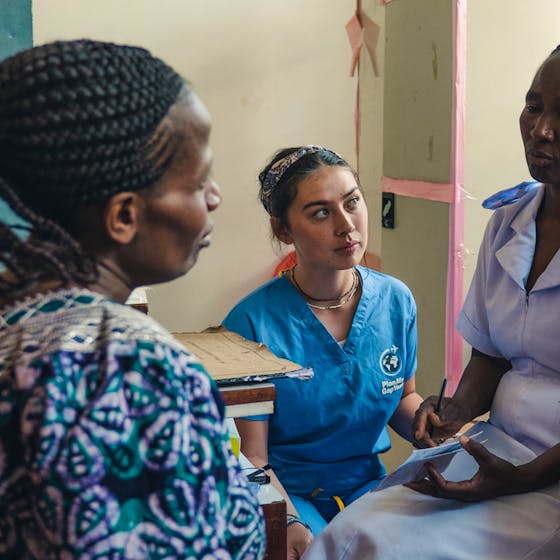
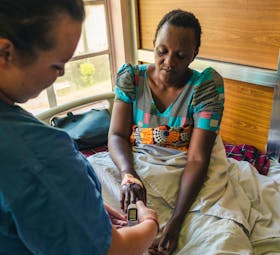
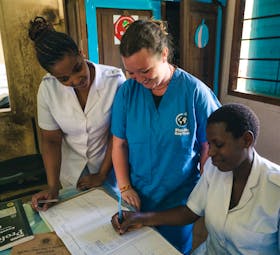
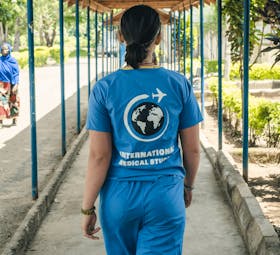
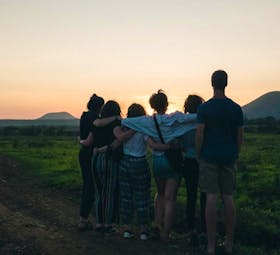

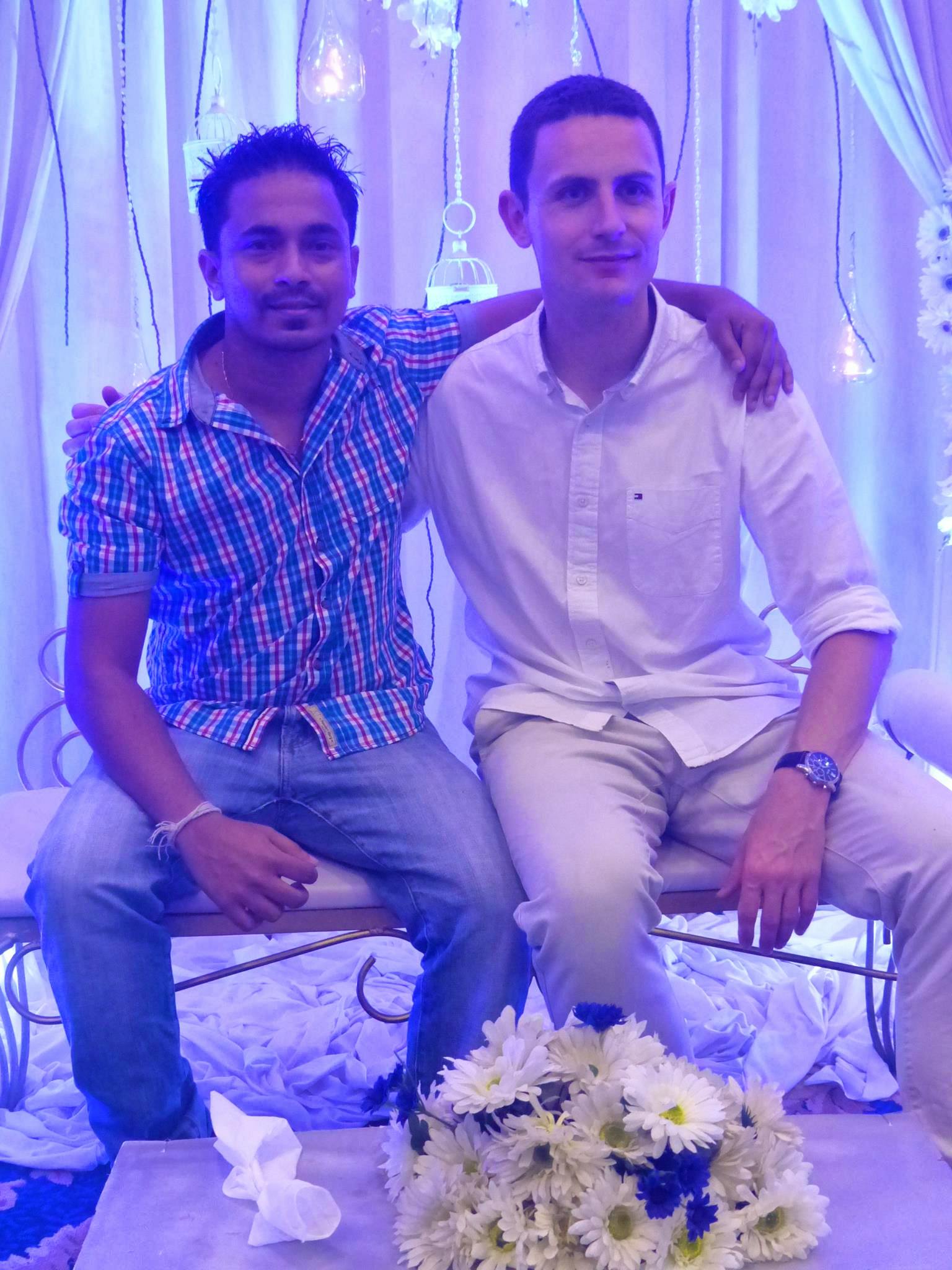
 4.8
4.8

